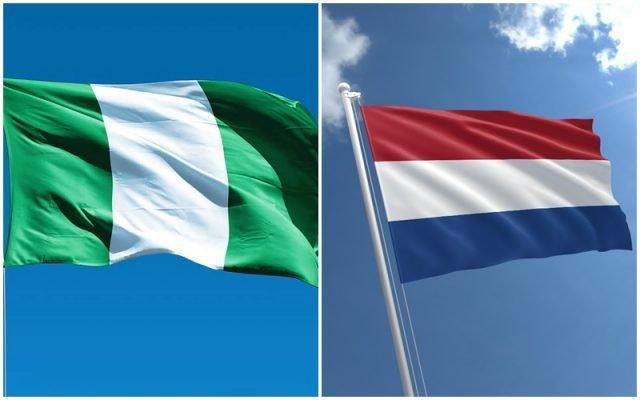The Nigeria-Netherlands Bilateral Working Group (BWG) has underscored strategic partnership and sustenance of bilateral relations between Nigeria and Netherlands to spur trade and investment.
This was jointly agreed upon at the end of the First Nigeria-Netherlands Annual Bilateral Working Group (BWG) Meeting on Trade and Investment on Tuesday in Abuja.
Amb. Samson Itegboje, Co-Chair of the group, while addressing newsmen noted that for the fact that Nigeria was the biggest trading partner of Netherlands in Africa in 2020, there was a need to strengthen the relationship.
Itegboje acknowledged investments by the Dutch Development Bank as well as projects funded by the Netherlands Ministry of Foreign Affairs and the Netherlands Enterprise Agency (RVO).
He said that those were contributing to better access to finance and development, while also providing the enabling environment for young entrepreneurs and green economic growth in Nigeria.
The meeting discussed priority areas of economic collaboration as well as opportunities for trade and investment.
Itegboje, also the Director, Department of International Organisation, noted the priority areas as Agriculture and Horticulture; Green Economic Growth; Life Sciences and Health, Youth Employment, Entrepreneurship and ICT.
Under agriculture and horticulture, he emphasised collaborative seed and dairy development programmes, the National Livestock Transformation Programme (NLTP) and exploration of technical support in cattle ranching and grazing reserves rehabilitation.
“Parties agreed to collaborate on Nigeria-Netherlands seed partnership, dairy development, export promotion process and capacity for research and knowledge exchange,” he noted.
Under the Green Economic Growth, the Netherlands restated its commitment to setting up a circular business platform in Lagos and linking Dutch and Nigeria businesses in the recycled plastics and solar energy sector.
Other areas of mutual interest covered in the discussion included renewable energy and recycling, circular economy and solar energy to contribute to achieving climate mitigation and adaptation goals in Paris Agreements.
Life Sciences and Health-related issues, as well as health insurance schemes, were equally covered.
On Youth Employment, Entrepreneurship and ICT he noted that the parties acknowledged Dutch initiatives such as Orange Corners Nigeria, Work in Progress as well as support for The Next Economy Programme of the SOS Children’s Villages.
”Nigeria reiterated the need to increase the number of beneficiaries, ensure gender balance and geographical space in implementation of youth development programmes in Nigeria by the Dutch.
“Nigeria solicited support to start-ups and Micro, Small and Medium Enterprises (MSMEs),” the Ambassador noted.
The meeting featured participants from relevant MDAs, partner organisations from Nigeria and Dutch counterparts, Kingdom of Netherlands’ Ambassador, Harry Dijk.
Others were: Permanent Secretary, Ministry of Foreign Affairs, Amb. Gabriel Aduda, and his Industry, Trade and Investment counterpart, Dr Nasir Sani-Gwarzo, among others.

 Education4 weeks ago
Education4 weeks ago
 News3 weeks ago
News3 weeks ago
 Business3 weeks ago
Business3 weeks ago
 Technology3 weeks ago
Technology3 weeks ago
 Investment4 weeks ago
Investment4 weeks ago
 Investment3 weeks ago
Investment3 weeks ago
 Telecommunications4 weeks ago
Telecommunications4 weeks ago
 Banking Sector3 weeks ago
Banking Sector3 weeks ago



















